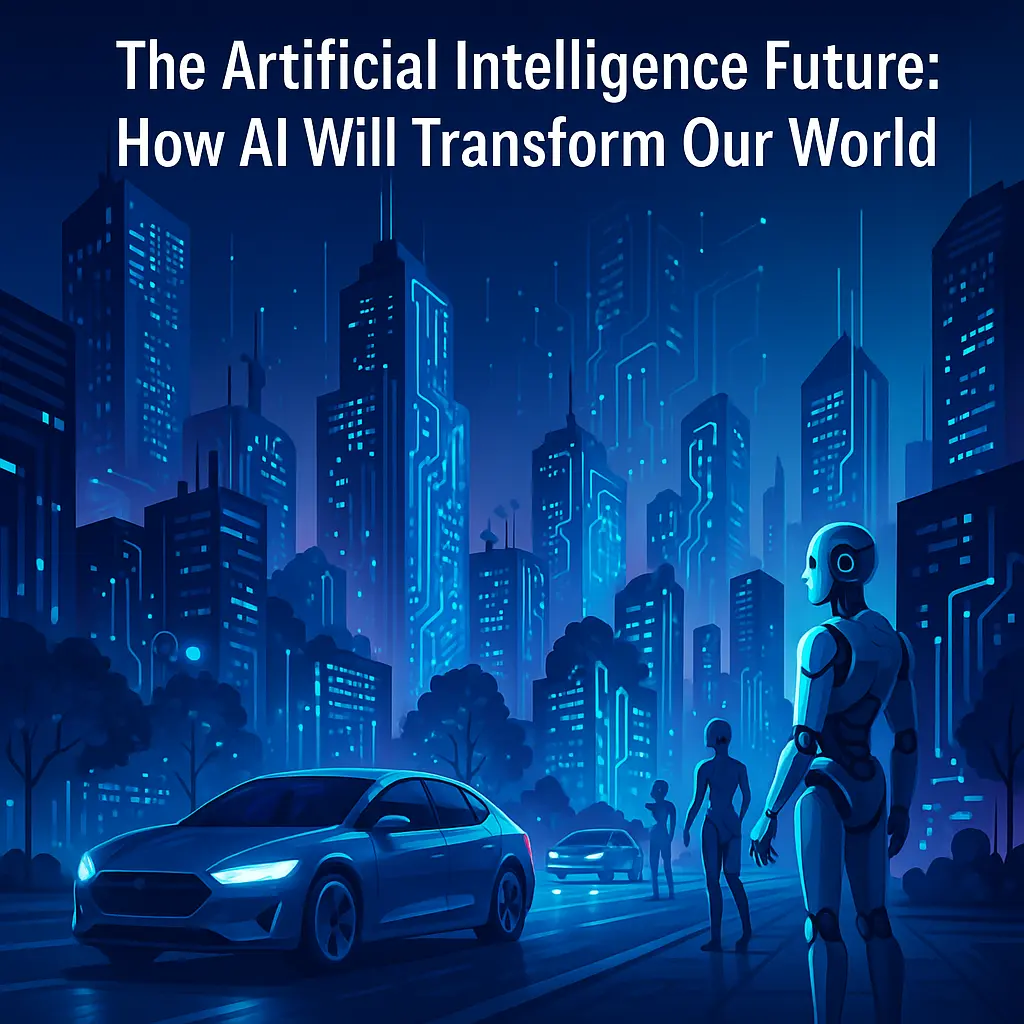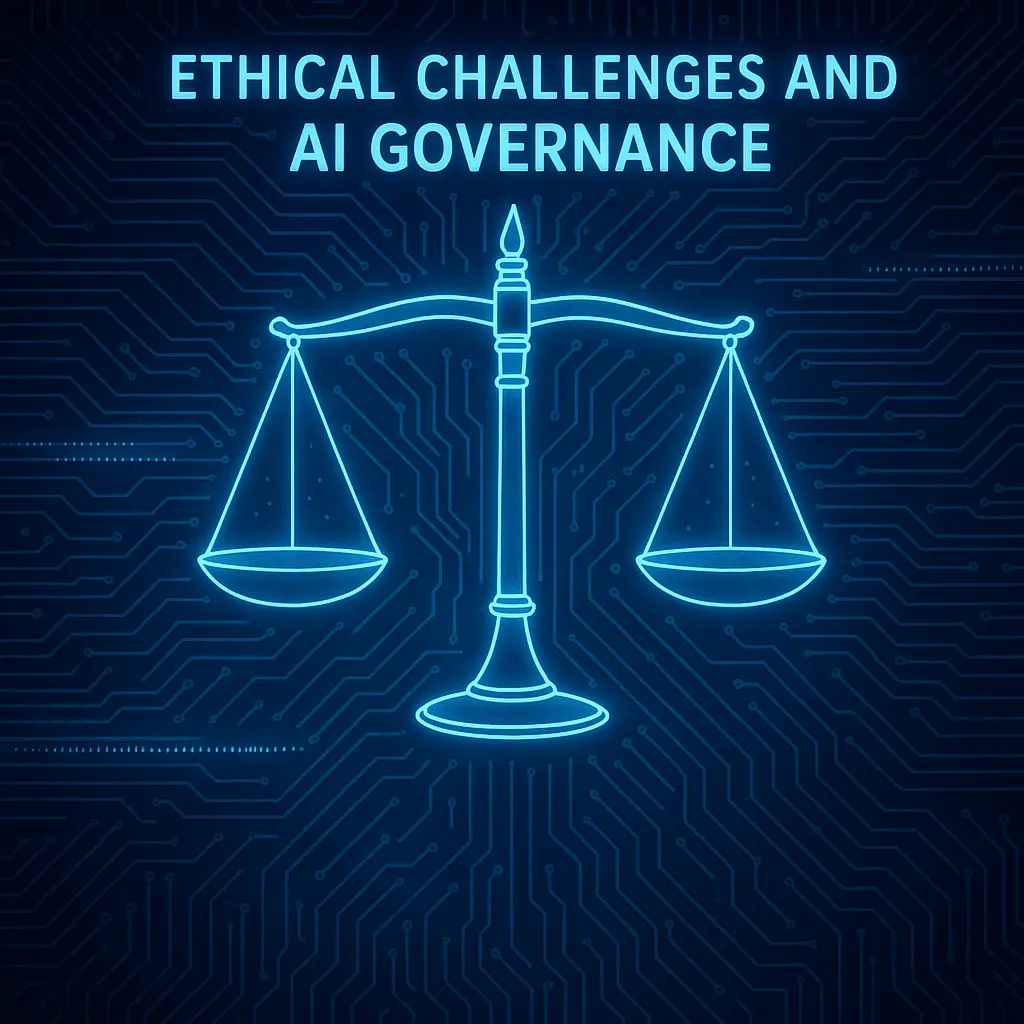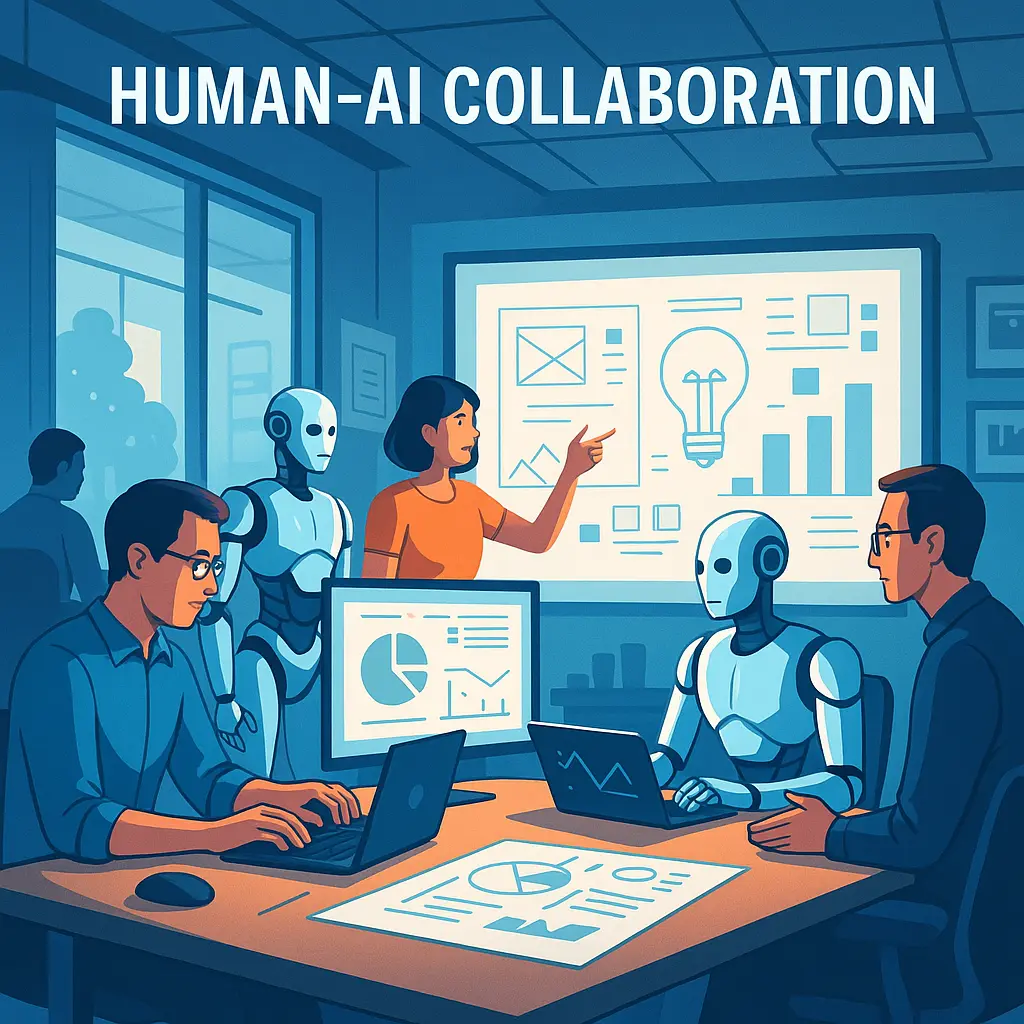Think about a world the place machines not solely maintain data but additionally assume, study, and adapt; that is not fiction, however the rising actuality of synthetic intelligence. Whether or not utilized to voice assistants, autonomous autos, or many different use instances, AI-based expertise is remodeling work, life, and connectivity.
Synthetic intelligence (AI) will be described as clever programs that resemble human intelligence to make choices, clear up issues, and study. Nonetheless, inside a few many years, AI went on to change into a important instrument in virtually each trade. With smarter algorithms and bigger datasets, the way forward for AI is about to alter all 4 quarters of the society in methods by no means seen earlier than.
This text discusses how the AI revolution will change the way in which we do enterprise and healthcare, assume ethically and educate. With this digital frontier, it’s crucial we familiarize ourselves with the chances and limitations of AI to create a extra good, much less biased future.


A Transient Historical past and Present State of AI
The historical past of Synthetic Intelligence goes again to the Nineteen Fifties when Alan Turing and John McCarthy started their work. AI developments have been as soon as hampered by the processing capabilities however momentum was created with the 2000s and superior algorithms and large knowledge.
Early slender AIs tackled issues reminiscent of spam detection however current-day generative AI, together with ChatGPT, has the flexibility to generate content material, code, and artwork.
Discover how generative AI is remodeling industries throughout domains.
Whether or not that’s voice assistants, self-driving vehicles, or advertisements, AI has change into an inseparable a part of our on a regular basis life, and it has modified the way in which we dwell and work considerably. The boundary between machine and human intelligence is getting thinner and thinner.
AI in Business and the Economic system
Developments of AI are transformative and disruptive to the trade and economic system.
- Automation and Labor Markets:
- AI-powered robots and software program can carry out routine duties sooner and extra precisely than people.
- This will increase effectivity but additionally results in job displacement in sure sectors.
- Manufacturing:
- AI allows predictive upkeep and efficiency monitoring.
- It helps real-time high quality assurance and streamlines provide chain operations.
- Logistics:
- Clever routing programs optimize supply paths.
- Warehouse automation reduces prices and improves effectivity.
- Finance:
- Agriculture:
- AI helps in crop monitoring, predictive yield evaluation, and soil well being evaluation.
- Autonomous farming machines improve productiveness and cut back handbook labor.
AI Startups Driving Innovation
The emergence of AI startups has led to a fast upsurge of innovation. Utilizing AI to change into extra environment friendly in diagnostics, fintech corporations creating extra revolutionary credit score scoring programs or well being tech organizations doing the identical, startups are disrupting the standard enterprise fashions and discovering new frontiers. Discover ways to grasp synthetic intelligence and change into a part of this wave of innovation.
AI Transformation in Legacy Industries
The transformation can also be taking place to the legacy industries. Those self same corporations which have integrated AI into their operations are realizing aggressive benefits, whether or not it’s by means of streamlining their workflows or making essential choices primarily based on knowledge.
Simply because the world economic system was on the verge of a brand new industrial revolution, with machines changing individuals, it’s now on the verge of a brand new industrial revolution; this time powered by clever programs versus mechanical ones.
AI in On a regular basis Life
The adoption of synthetic intelligence in every day life is getting extra seamless. Siri, Alexa, and different good assistants can carry out their duties when it comes to scheduling, reminders, and answering in real-time. We get customized solutions of what to have a look at, buy, and browse; in the meantime, predictive algorithms forecast our wants in apps, purchasing, and navigation.
In Healthcare:
AI enhances diagnostics by analyzing medical photos, predicts affected person outcomesand accelerates drug discovery. Digital well being assistants help psychological well being and power situation administration, providing around-the-clock care and insights.
In Schooling:
AI-DRIVEN adaptive studying programs are utilized to ship customized classes tailor-made to every pupil’s particular person wants, thereby serving to to shut studying gaps. There are AI tutoring instruments that give rapid responsesfollow questions, and even mimic individualized courses.
AI is redefining comfort, accuracy, and personalization in our day-to-day actions. The smarter and extra anticipatory these programs change into, the extra knowledge they accumulate, drawing us right into a hyper-networked, AI-enhanced existence.
Moral Challenges and Dangers


Though AI presents large potential, it additionally poses vital moral questions and risks. One problem of major focus is algorithmic biaswhich incorporates the danger of systematically reinforcing discrimination in recruitment, policing, or lending, all of that are supported by AI programs skilled on biased datasets.
To realize equity in AI, the belief of each transparency in mannequin design and accountability in outcomes is required.
One other problem on the excessive agenda is knowledge privateness. AI primarily operates primarily based on private info; subsequently, with out the mandatory safety mechanisms, the consumer’s knowledge could also be misused or mishandled.
One other complexity is the lack of uniformity of privateness procedures throughout borders, which makes it tough to guard the rights of people.
AI automation has already prompted job displacement in low-skill industries and is endangering to extend social inequality. Though new occupations linked with AI are rising, there’s an rising want for a large scaling of the reskilling program to keep away from disrupting the economic system.
Extra hazardous threats are the autonomous weapons and the abuse of AI within the unfold of misinformationtogether with deepfakes. These will not be solely threats to people, but additionally democratic programs and world stability.
Moreover, there are additionally regulatory loopholes that point out alternatives to implement AI with out correct management in sectors reminiscent of surveillance and finance.
To make sure a protected and honest future, governments, companies, and scientists should collaborate to develop moral frameworks for AI, regulate it successfully, and prioritize human-centric design. It’s simply as important to maneuver these risks as it’s to create the expertise itself. Take a free course on the moral functions of AI to raised perceive these points.
The Future: What’s Subsequent for AI?
As we glance forward, the way forward for AI raises each pleasure and uncertainty. A key space of hypothesis is Synthetic Common Intelligence (AGI)AI that matches or exceeds human cognitive talents. Whereas some consultants consider AGI might emerge inside many years, others view it as a distant, probably unreachable purpose. Whether or not actual or hype, the talk underscores the necessity for robust moral and governance frameworks.
Within the close to time period, human-AI collaboration holds essentially the most potential. Quite than changing people, AI is poised to enhance our talents, serving to medical doctors analyze knowledge extra effectively, enabling creatives to provide content material sooner, and supporting researchers with advanced modeling and simulations. This co-evolution of human and machine intelligence might redefine productiveness and innovation throughout each subject.
Past particular person industries, AI can assist deal with world challenges. From optimizing vitality grids to predicting local weather tendencies, advancing illness analysis, and bettering meals distribution, AI might play an important position in fixing issues which have lengthy eluded conventional approaches.
However this future is determined by accountable innovation. As AI continues to evolve, collaboration between technologists, policymakers, and the general public shall be important to make sure that its advantages are broadly shared and its dangers minimized. The following period of AI shall be formed not simply by algorithms, however by the values we select to embed in them.


Synthetic intelligence isn’t just a technological breakthrough; it’s a defining pressure of the twenty first century. From its early roots to the rise of generative AI, the expertise has rapidly moved from laboratories into each facet of every day life, remodeling industries, economies, and private experiences.
As we’ve explored, AI’s potential is huge, from bettering healthcare and training to reshaping how we work and clear up world issues. But, it additionally brings vital moral and societal challenges that demand cautious consideration.
The trail ahead isn’t nearly what AI can do, however what it ought to do. As we step into this new period, the alternatives we make in the present day about regulation, transparency, and inclusivity will decide whether or not AI turns into a pressure for empowerment or division.
The way forward for AI remains to be being written. Let it’s a narrative of innovation with conscience, the place expertise enhances humanity, quite than replaces it.
The way forward for AI remains to be being written. Let it’s a narrative of innovation with conscience, the place expertise enhances humanity, quite than replaces it.

